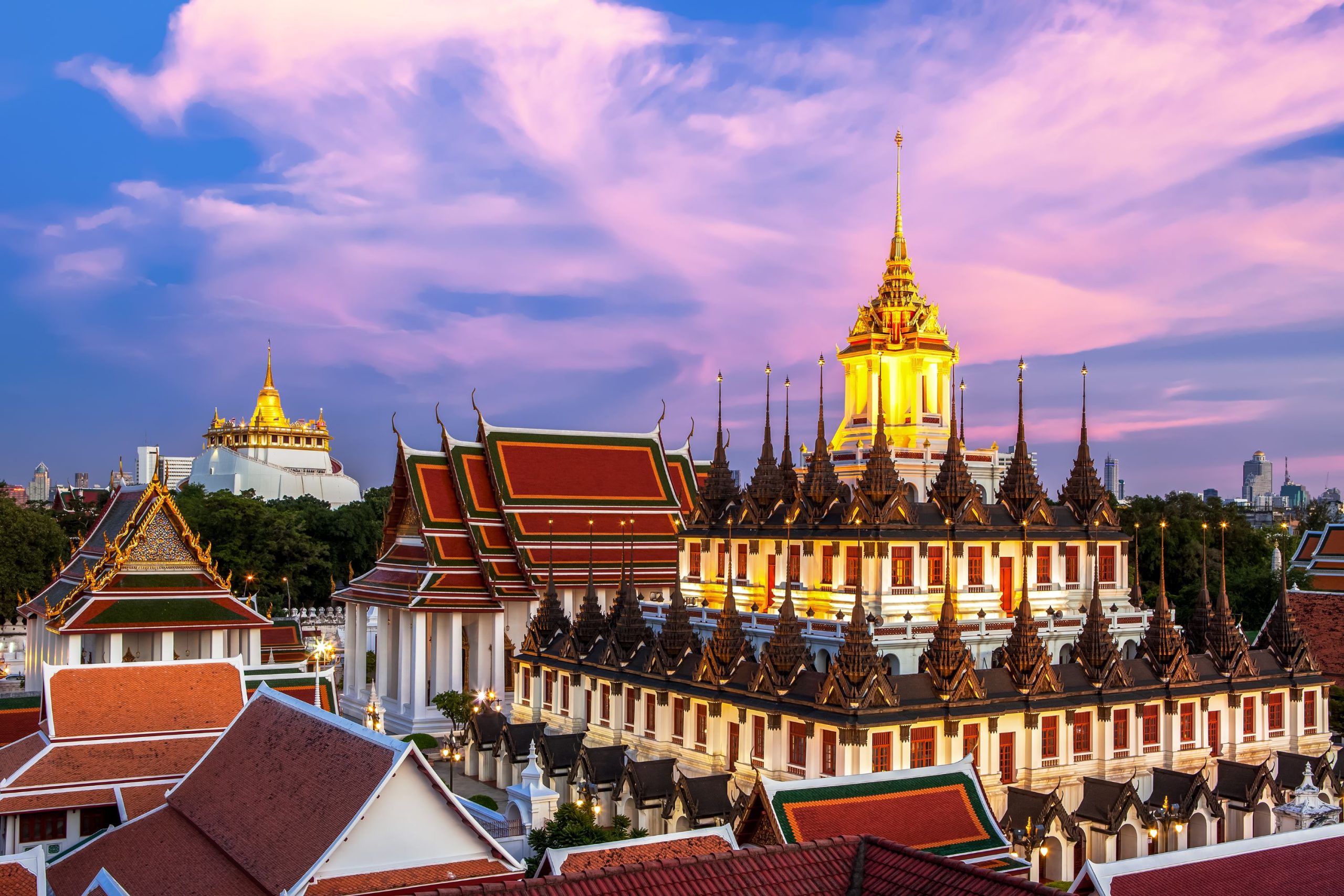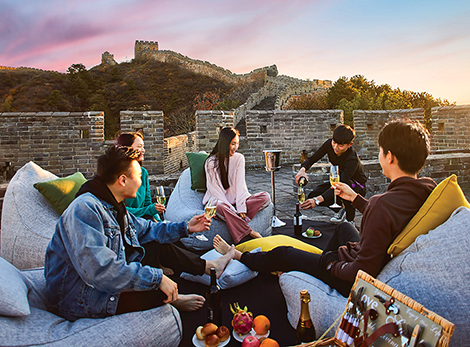
EVERY visiting group should be taken on a pilgrimage from Beijing out to the Great Wall. It’s one of the world’s wonders, history’s most enterprising engineering feat, its mountain-hugging structure even visible from space.
But until recent years, there were few options to actually stay out by the Wall: every visitor and planner had to settle for the day-trip option, albeit one that could be augmented by a gourmet lunch, or dinner, on a less-visited part of the structure.
Now there is a whole raft of stay-by-the-wall choices available to meeting and incentive planners, including larger hotels, boutique hotels and, most intriguingly, private village homes renovated to contemporary standards of luxury.
Accessing the area has becoming significantly quicker in recent years, thanks to freeways that can mean a journey time of just 90 minutes from downtown.
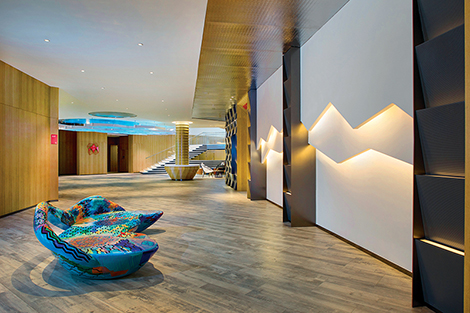
Planners looking for a radically different luxury experience for their high-end clients can consider the village-house options offered by American entrepreneur Jim Spear. For most of his adult life, the Chinese-speaking executive travelled the country on business, before stepping off the corporate treadmill to focus on refurbishing crumbling village homes.
Spear has a keen eye for design, and a fanatical attention to detail, meaning the finish of the village homes, around the Mutianyu section of the Wall, reach five-star levels of comfort.
One of these prime properties, Persimmon Court, is a three-bedroom executive courtyard home in the shadow of the Great Wall built on three stories of hand-hewn rock wall. The rooftop terrace offers a view of the Wall. Another home, Mumanyu, features sky-lit interiors and four bedrooms.
Spear is working on a totally MICE-oriented option, Eagles Rest, which should be finished by the end of next year. He says: “It is a specialised retreat, a 1,200 sqm residence on hilltop private grounds with dedicated facilities for high-level retreats. It has unique meeting room space, catering facilities for onsite meals, exercise room, media room and outdoor terrace with fantastic Great Wall views.”
Also in the Spear portfolio is a small boutique hotel, the Brickyard, which is suitable for smaller-scale events. The hotel rooms look out onto the Great Wall and there is an on-site restaurant offering Chinese and western food.
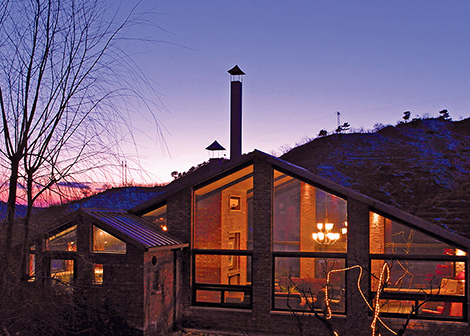
Planners looking for larger-group options can take a look at Dhawa Jinshinlang, a hotel run by the Banyan Tree group, which also nestles by the Great Wall. It has 400 sqm of ballroom space, a full programme of events to choose from, and can accommodate up to 250 guests.
Very few – if any – hotels can boast their own private stretch of the Great Wall. The Commune by the Wall is a collection of spacious private villas designed by Asian architects and has a section of the structure that can only be accessed from the property. The property is a real gem, locally managed but to the highest standards, with an outdoor pool operational during the summer months. In total, there are 40 villas, 175 suites and three restaurants, with all the buildings carefully landscaped to blend into the hillside forest.
It is a favourite recommendation of Gunther Homerlein, general manager of Destination China. Another is a weekend with British adventurer William Lindesay, an individual who once ran the length of the Great Wall
“Staying the weekend with William at his ‘ranch’ is a great option,” says Homerlein. “William is one of the foremost experts on the Great Wall, has written several books, been interviewed multiple times and walked every centimetre of the Wall that remains. He is engaging, energetic and has a level of expertise and way of delivering it that is amazing.
“William takes up to eight couples, or around that number, for three-day, two-night visits to his ranch. He wakes his guests early to take them on a hike up the unrestored Wall in the dark so they can watch the sunrise over this amazing ancient wonder.”
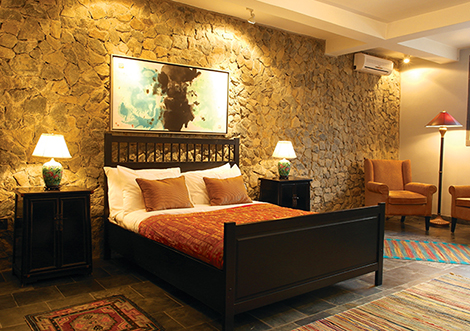
A decent level of fitness is a prerequisite for the Wild Wall Weekends, as is the ability to be able to handle the rustic conditions at the simple farmhouse – Lindesay himself jokingly calls the accommodation The Barracks. The reward is, of course, a totally novel perspective of the Wall, experiences and stories that are truly inspirational from an individual who has been honoured by both the Chinese and British governments for his pioneering conservation work.
A more feasible option for larger groups is the Sunrise Kempinski Hotel which is within easy reach of China’s most famous structure. Pretty much any sized event can be catered for at this property, which boasts more than 14,000 sqm of meeting space, a conference centre and 12 restaurants. The main hotel has 302 rooms with another 110 at the Yanqi Hotel and a further 178 rooms spread across 12 boutique mini-hotels arrayed around Yanqi lake. It is a one-stop MICE shop that was originally built for China’s hosting of an APEC conference and remains the only facility of its kind in Beijing.
From the comfort of a private helicopter, you … fly close enough
to distinguish crumbling bricks of the unrestored sections,
before gliding above valleys to get a panoramic view of the
winding fortifications – Katie Cundale, Wild China
It allows easy access to the Great Wall and also a number of other attractions such as the Hongluo Tempe Qinglong Gorge and Baiquan Mountain. Among the range of activities is water sports, horse back riding and, in the winter months, skiing.
Planners looking for adventurous experiences for their clients can choose from a range of options offered by Wild China – in Beijing and beyond. The company, founded by Harvard graduate Zhang Mei, originally offered rural curated tours for individual wealthy tourists, and in recent years has developed its corporate division.
Wild China can draw up tailored adventure itineraries which include the option of taking a helicopter ride over the Great Wall although the vagaries of China’s aviation rules and regulations – not to mention the weather – make it difficult to give cast-iron guarantees.
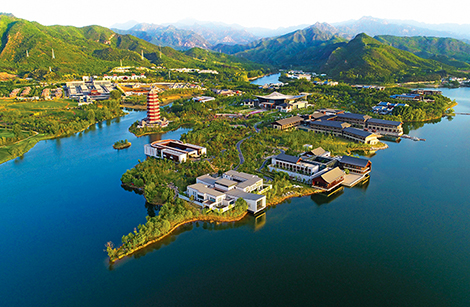
Permission to fly depends on what is happening in and around Beijing: major government conferences, for example, tend to mean air-space restrictions. But it is a tantalising option, experienced by very few people.
“It is a rather different view of one of the world’s most iconic manmade structures,” says Katie Cundale, the company’s head of marketing.
“From the comfort of a private helicopter, you witness the undulating mountaintops crowned with watchtowers that extend as far as the eye can see, and fly close enough to distinguish the crumbling bricks of the unrestored sections, before gliding above valleys to get a panoramic view of the Wall’s winding fortifications.”
Destination China’s Homelein, who is always on the lookout for new, or unusual, sites for repeat visitors who have already seen the major imperial attractions, has a further recommendation.
“Ba Da Chu is a fascinating and very important Buddhist site in the western hills,” Homelein says. “It has eight different temples as you climb the hill, all with a different purpose. Ba Da Chu is worth the extra effort.”
Photos, from the top: Drinks at the Dhawa Jinshinlang by the Banyan Tree Group; interior of the Dhawa Jinshinlang; exterior and interior shots of the Mumanyu property; an aerial view of Yanqi Island, home of the Sunrise Kempinski Hotel, Yanqi Hotel and 12 boutique properties
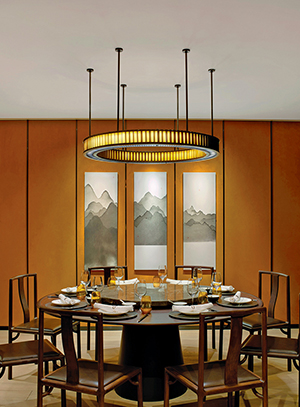 MANDARIN‘S CHOICE
MANDARIN‘S CHOICE
THIS year saw the debut of the first Mandarin Oriental hotel in China’s capital – a 73-room boutique property located in the heart of the imperial area, a short stroll from the Forbidden City.
One of the key selling points of Mandarin Oriental Wangfujing, Beijing, located on the top floors of WF Central, a Hongkong Land luxury mall development, is the stunning terrace view out towards the iconic palace, which is the world’s largest.
Many rooms and suites have views towards the home of Ming and Qing emperors, as do all the dining outlets. The hotel can offer its prime suites as venues for exclusive gatherings and product launches, utilising the expansive outdoor terrace areas. There are also designated meeting facilities. The 80 sqm Tai Pan room can accommodate 32 seated guests, or 60 people for cocktails, while the oak-panelled Wangfu private room, which can hold up to 12 people, has a view of the iconic Forbidden City and the option of serving gourmet meals.
Another five-star newcomer in the same area is the PuXuan Hotel and Spa, sister property to the PuLi hotel in Shanghai. In the northern part of Beijing, the Opposite House, a favourite of the art, design and fashion crowd, is marking its tenth anniversary with a major upgrade that will see the popular Mesh late-night bar make way for a casual restaurant and the previous check-in space turned into a classy lounge with comfortable sofas.
Whatever the choice of accommodation, or event venue, in Beijing, it is worth bearing in mind the size and scale of the vast city, home to 22 million people. Its immensity always amazes first-time visitors.
